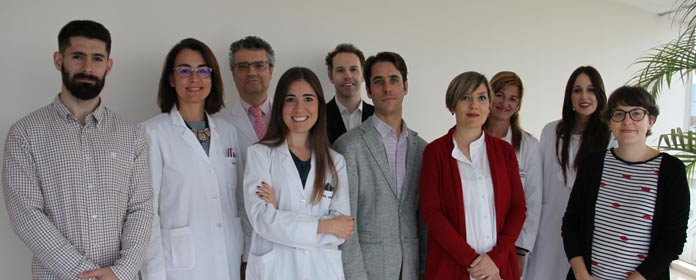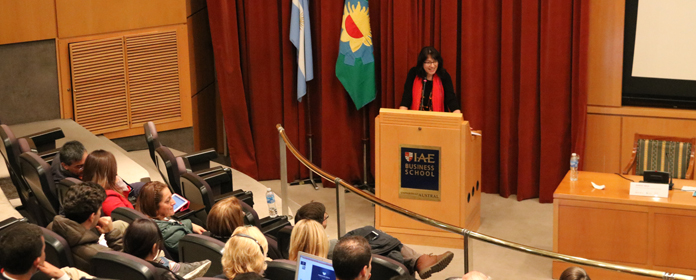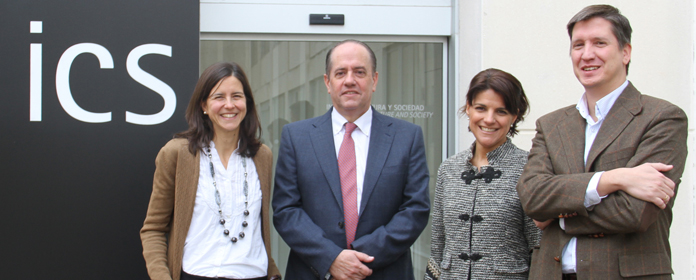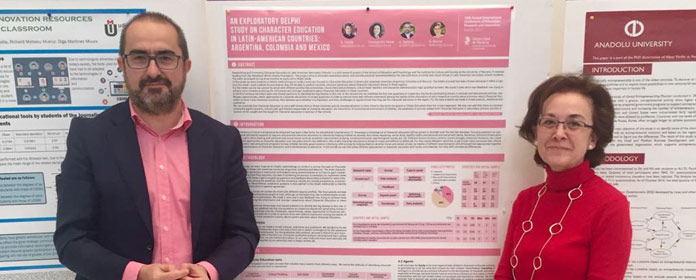Recovering Aristotle's thought to innovate in the Education of character
Kristján Kristjánsson, professor at the University of Birmingham, offered a philosophical and psychological view of the Education of character on the framework of an international congress .
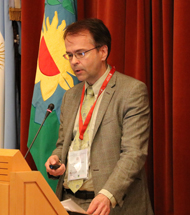
PHOTO: Isabel Solana
An Aristotelian vision of the Education of character, based on the thought of the Greek philosopher and considering the social scientific findings in the style of ethical naturalism. This is the commitment of Kristján Kristjánsson and the institution of which he is Deputy Director, the Jubilee Center for Character and Virtues at the University of Birmingham (UK).
The expert presented a lecture at the congress 'Education of character in Latin America: challenges and opportunities', organized by the University of Navarra at partnership with the Austral University (Argentina) and with funding from the Templeton World Charity Foundation.
Professor Kristjánsson defined virtues as "stable and consistent character traits related to morally praiseworthy behavior in specific spheres of human life".
He defended the need to prioritize the Education of character over other more general moral issues: as an example, he mentioned that learning about justice in the classroom and the family is prior to justice in society.
In particular, he favored the Aristotelian proposal "for its good foundation in a viable moral theory and its rich conceptual repertoire (praxis, naturalism, phronesis...)". He also defended that this conception of the Education of character, unlike others, is not instrumentalist.
Eight unresolved problems of Education of characterIn a thought-provoking exercise, throughout his talk he delved into a number of unresolved issues affecting the Education of character in general, including the Aristotelian view.
He first considered the need to connect with psychologists and get them on board with this proposal, making them understand the distinction between facts and values and the idea of intrinsic value.
Secondly, he alluded to the problem of the heterogeneity of the terminology of Education of character, both geographical and historical, which hinders the implementation of programs in the classroom, also those with an Aristotelian perspective.
Third, he mentioned genetic factors, the idea that the development of virtues should be adjusted to the personality; and fourth, he pointed out the variation of moral roles -and, therefore, of aspirations and obligations- that occurs according to the different situations a person lives (parent, student, friend, client...).
Fifth, he pointed to the problem of habitus: the different social, ethnic and educational self-conceptions that children carry in school. "Much of the empirical research on moral development reveals a strong link to the social and economic environment; affluent children score better score than poor ones on these programs of study, but few moral Education programs address this topic directly," he lamented.
Thus, he encouraged attention to the ways in which the different habitus of children in a school "can become a moral resource rather than a potential disadvantage source ".
The sixth point was the problem of the 'rational tail' wagging 'an emotional dog,' described by social psychologist Jonathan Haidt. "The Education of character fails to take into account the latest findings of what he calls the 'new synthesis in moral psychology,' a mixture of a strong sentimentalism about morality-with emotion as the sole source of moral value-and a social intuitionism about moral motivation as innate, driven by emotions. Reason plays a significantly reduced role here."
He wondered how Aristotelian character educators can respond to these findings and whether "the emotionalization of morality has gone too far."
The seventh idea was the problem of self-knowledge and resistance to self-change. "The Aristotelian Education perspective on character tends to overestimate people's ability to understand who they really are and their motivation to change, even if they realize that their character traits leave something to be desired."
Finally, he alluded to the need for a moral theory that serves as a 'snapshot' rather than an engineering of fragmented pieces. "From time to time," he said, "you have to step out of the cave of ideas and look inside from the perspective of the outside observer who asks what all the speech on Education of character is really for.
In conclusion, he encouraged specialists in moral Education in general and Aristotelian character Education in particular to think about these issues. He encouraged them to nourish themselves with "a substantive dose of intellectual modesty" to mitigate "the transformative goals of their efforts."
Kristján Kristjánsson took part in the international congress 'Education of character in Latin America: challenges and opportunities', which brought together researchers, school teachers and education policy makers. It took place on June 13-14, 2018 at the IAE Business School of the Universidad Austral, in Pilar (Argentina).
The event was promoted by'Investigating and promote the Education of character in secondary schools in Latin America', a project of research joint School of Education and Psychology and the Institute for Culture and Society (ICS). It is funded by the Templeton World Charity Foundation.


